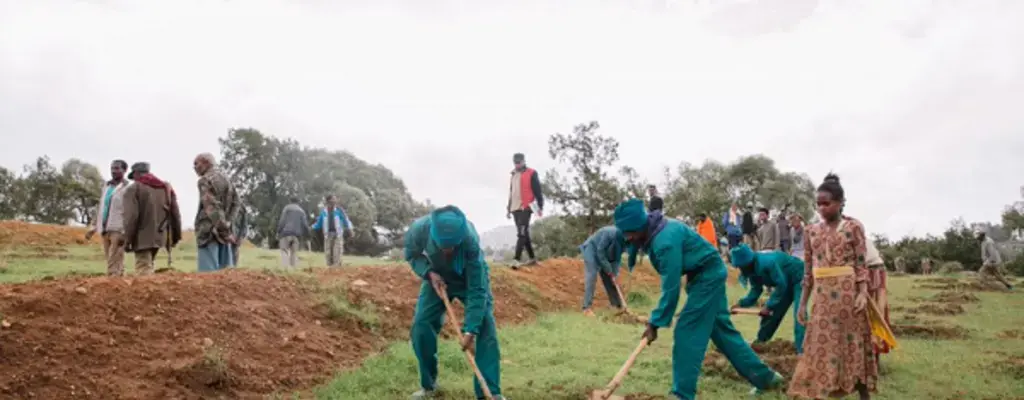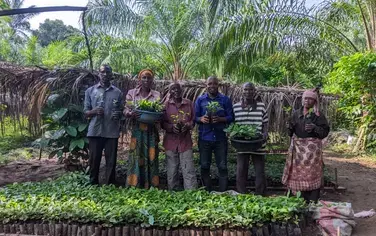As part of the Government’s Green Legacy campaign, growing trees has become a national pastime in Ethiopia. Credit: Aron Simeneh/WRI
The Ethiopian Environment, Forests, and Climate Change Commission (EFCCC) and WRI are partnering up to boost private investment in restoration. The forest sector is critical for Ethiopia’s economy, engaging an estimated 57 million people in full or part-time economic activities. However, Ethiopia’s forests are under increasing pressure from land degradation, deforestation, and a growing demand for wood and other forest products.
These challenges create an urgent need for investment in sustainable forestry. Growing trees can help meet national targets to create 630,000 forest-sector jobs in rural areas, build sustainable woodlots, and reduce pressure on standing forests. A new report by EFCCC and WRI titled Trees, Forests and Profits in Ethiopia highlights that engaging in forest nursery operations, planting and maintaining seedlings, protecting forests, and collecting and marketing non-timber forest products like bamboo and honey can create high-quality jobs. Nationally, these private investment opportunities extend across 26 million ha of commercial forests and 190,000 ha of state-owned plantations. The eight profitable restoration businesses that the report highlights can scale up their operations to help meet that goal. You can read the entire report (in English) here.




